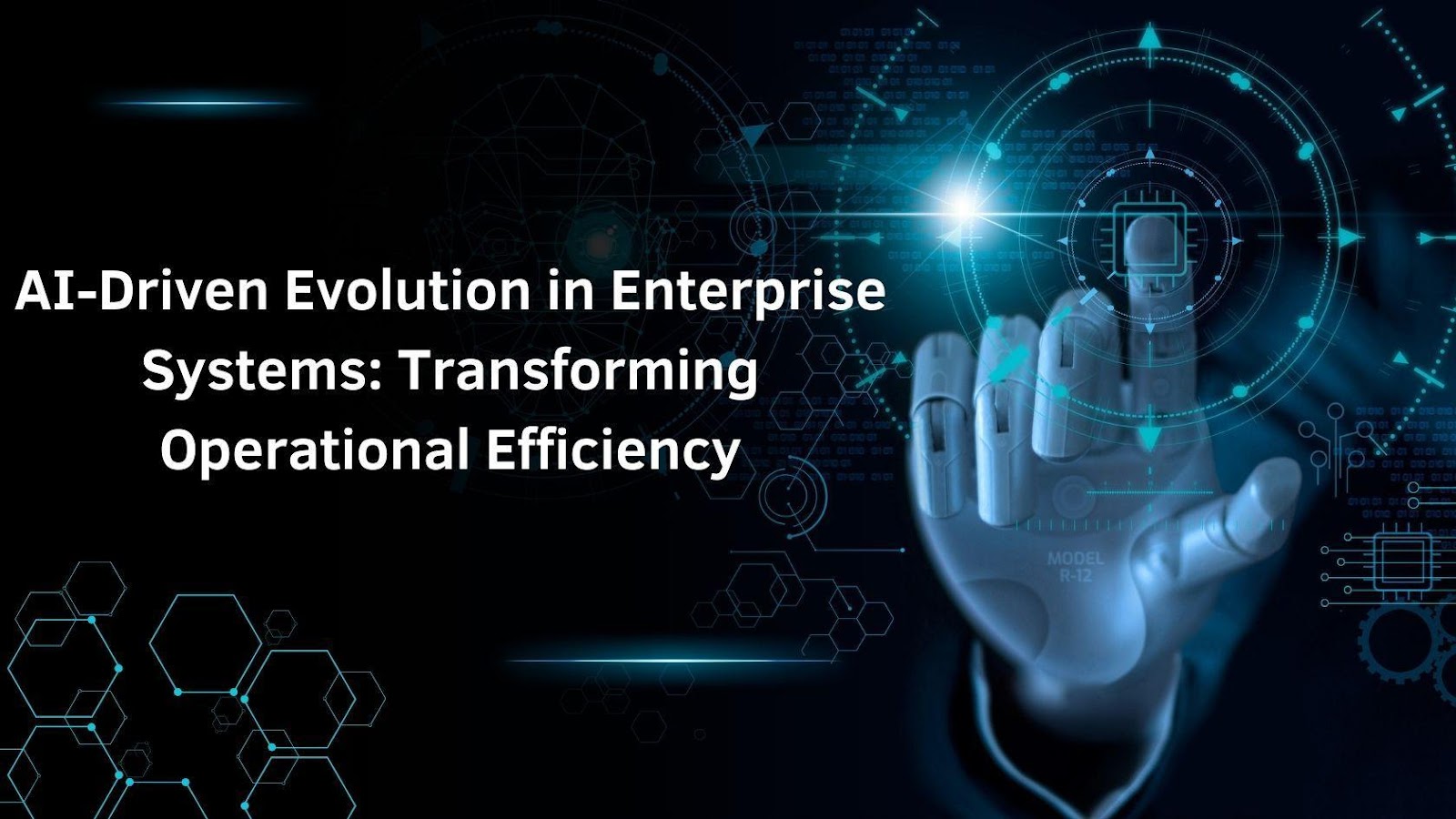In the modern digital era, the integration of Artificial Intelligence (AI) into enterprise resource planning (ERP) systems marks a significant technological leap, revolutionizing how organizations manage complex business processes. Shyamlal Sama, an expert in enterprise system transformations, explores this AI-driven evolution, highlighting key innovations and their impact.
The Rise of AI in Enterprise Systems
AI is reshaping ERP systems by moving beyond conventional data processing to intelligent, predictive, and automated operations. The ability to analyze vast datasets and generate actionable insights is enabling organizations to optimize decision-making, streamline workflows, and enhance overall efficiency. AI adoption in ERP solutions is steadily increasing as businesses seek to leverage data for strategic advantage.
Predictive Analytics: Enhancing Decision-Making
One of the most significant AI-driven innovations in ERP systems is predictive analytics. By utilizing AI models to analyze historical data and identify trends, businesses can optimize supply chains, improve financial forecasting, and enhance resource allocation. Predictive analytics enables enterprises to anticipate market fluctuations, mitigate risks, and maintain a proactive approach to operations.
Machine Learning: Automating Core Business Functions
Machine learning (ML) is revolutionizing process automation within ERP systems. From intelligent document processing to automated vendor management, ML-powered applications enhance efficiency and accuracy. By continuously learning from data, these AI models refine business processes, reduce manual intervention, and minimize errors, making operations more agile and responsive.
AI-Optimized Data Pipelines: Managing Enterprise Information
The integration of AI into ERP systems necessitates robust data pipeline architectures. Modern enterprises require scalable and secure data frameworks to support AI-driven functionalities. Advanced data pipelines ensure seamless information flow, enabling real-time analytics and improving system reliability. Organizations implementing AI-driven ERP solutions must establish data governance frameworks to maintain data quality and security.
Strengthening Security Through AI
AI-powered security frameworks are becoming essential in enterprise environments. With ERP systems handling vast amounts of sensitive data, AI-driven security measures such as real-time anomaly detection, automated threat response, and predictive risk assessments enhance cybersecurity. AI-based access controls and encryption techniques ensure compliance with industry regulations while safeguarding enterprise data.
Transforming Financial Operations with AI
AI applications in financial operations have introduced advanced automation, improving processes such as cash flow management, financial forecasting, and transaction reconciliation. AI-driven financial analytics provide businesses with deeper insights into their financial health, enabling data-driven decision-making. Automated transaction matching and fraud detection further enhance the security and efficiency of financial workflows.
AI in Supply Chain Optimization
Supply chain management has witnessed significant transformation through AI integration. AI models analyze vast datasets to optimize inventory levels, forecast demand accurately, and reduce operational costs. AI-driven logistics management ensures better handling of supply chain complexities, minimizing delays and maximizing efficiency. Businesses leveraging AI-powered supply chain solutions gain a competitive edge through improved adaptability and responsiveness.
Manufacturing Intelligence: Driving Process Optimization
AI-driven manufacturing intelligence enhances quality control, resource optimization, and production efficiency. Real-time monitoring powered by AI allows businesses to detect defects early, optimize workflows, and ensure seamless operations. AI-enabled predictive maintenance reduces downtime and increases equipment longevity, ultimately leading to cost savings and improved productivity.
Implementing AI in ERP: Key Considerations
Organizations looking to integrate AI into their ERP systems must adopt a structured approach. Establishing the necessary technical infrastructure, ensuring data readiness, and aligning AI initiatives with business objectives are crucial. A phased implementation strategy—starting with pilot projects and gradually scaling AI capabilities—minimizes risks and maximizes success rates.
The Future of AI in Enterprise Systems
The next frontier in AI-driven ERP innovations includes advancements in natural language processing (NLP), intelligent automation, and cognitive services. NLP-powered chatbots and virtual assistants are making enterprise systems more user-friendly, enabling seamless human-AI interactions. AI-driven automation continues to evolve, reducing manual workload and enhancing process efficiency. Cognitive services, such as AI-powered analytics and decision support systems, will further refine enterprise intelligence and drive data-driven strategies.
In conclusion, AI is transforming ERP systems with predictive analytics, machine learning, and automation. Organizations leveraging AI-driven ERP gain efficiency, better decision-making, and stronger security. As AI advances, businesses must adopt it strategically to stay competitive. Shyamlal Sama highlights AI’s crucial role in shaping intelligent enterprise solutions for the future.

































